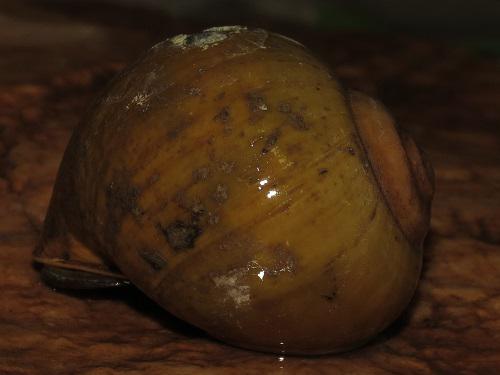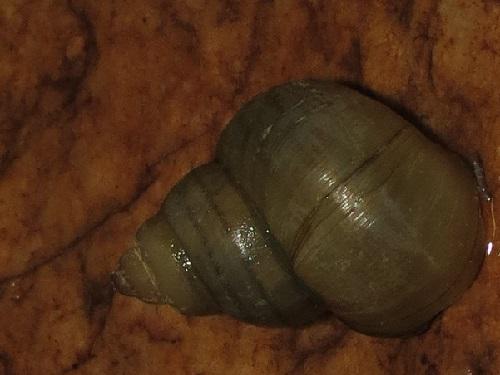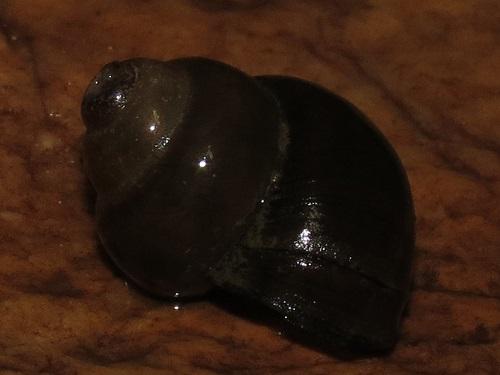Maitreya Sil
The project aims to understand the diversity of three species of freshwater snails using integrative taxonomy, determine the possible distribution range of each species and ascertain the physical parameters of water that might be responsible for their local abundance. The second major goal is to disseminate the information generated to policy makers and local community.

Pila globosa.
India, owing to its complex geological history and varied physiography and climate, is home to a diverse set of freshwater gastropod fauna. The growing demand of land for agriculture, urbanization and industrialization has led to rapid shrinkage and deterioration of wetland habitats in the last few decades. Habitat loss and pollution threatens many invertebrate inhabitants of these wetlands. Still, when it comes to conservation, the invertebrate species rarely get the required attention. In order to conserve the wetlands and the species that reside there we need to showcase the diversity, vulnerability and identify the forces that imperil the wetland ecosystem.

Bellamya bengalensis.
Two of the Major reasons contributing to the negligence are Linnean shortfall i.e. taxonomic insufficiency and Wallacean shortfall i.e. scantiness in knowledge on their distribution range. A large chunk of the species in these groups are only known from single specimens collected from their type locality. Again, emphasis on morphology based taxonomy in the currently available classification schemes has led to underrepresentation of the diversity due to the limited ability of the method to identify cryptic species. Freshwater gastropods that belong to the families Ampullariidae, Viviparidae and Planorbidae are ideal model systems in this respect since many of these species are grossly understudied. We plan to use thorough sampling strategy along with integrative taxonomy to understand the actual diversity and distribution of these species. Moreover we shall try to detect the physical parameters of water that governs the presence, absence or local abundance of these species and link them with certain anthropogenic activities. The study will create an understanding not only about the model systems but also about the diversity, distribution patterns and anthropogenic threats of freshwater invertebrates of Indian subcontinent in general.

Bellamya cf. dissimilis.
We shall also make an effort to disseminate the information generated to the concerned party. We hope that the information would aid policy makers in assessing the status of the species concerned and the habitat as well. We also feel that the local community who are dependent on the wetlands for their basic amenities and livelihood must understand the role of freshwater gastropods in ecosystem, importance of wetlands in their lives and how anthropogenic activities threatens them. We shall partner with NGOs to reach out to local people in certain parts of the country. Lastly we shall make the data available to researchers and students working in the same field. The results of our study will serve as baseline data for further studies in ecological interaction and conservation.